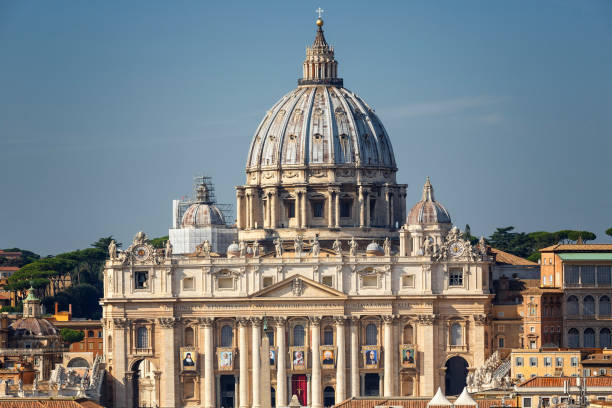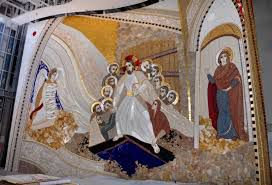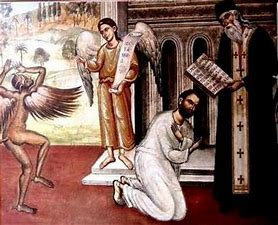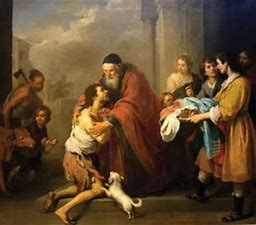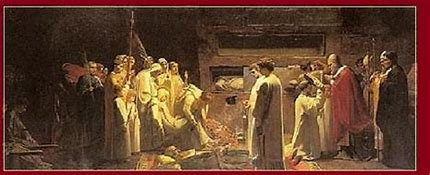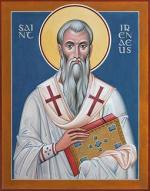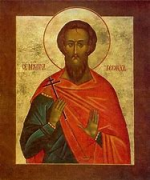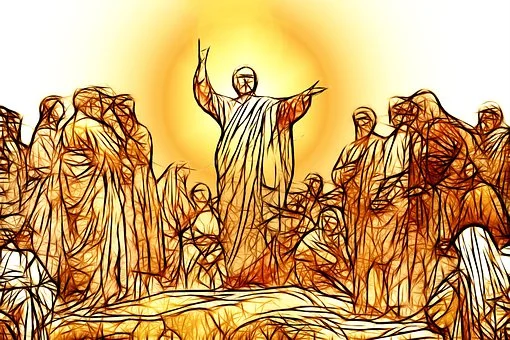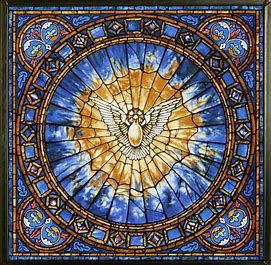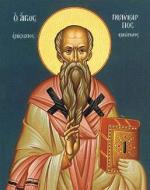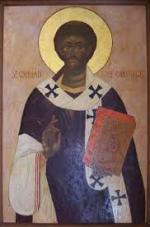The Sacrament of Reconciliation
And the prayer offered in faith will make the sick person well; the LORD will
raise them up. If they have sinned, they will be forgiven. Therefore, confess your
sins to each other and pray for each other so that you may be healed. The prayer
of a righteous person is powerful and effective. Elijah was a human being, even
as we are. He prayed earnestly that it would not rain, and it did not rain on the
land for three and a half years.
James 5, 15-17
The Sacrament of Reconciliation, also known as Confession, involves Catholics thinking about what their sins are (examination of conscience), resolving to avoid the sins in the future (the desire of amendment), confessing their sins to a validly ordained priest, and performing the penance the priest assigns to them. The purpose of confessing their sins is to mend their broken relationship with God and receive sanctifying grace to heal their souls and repair that relationship, allowing them to enter back into communion with the Church. Faithful Catholics obtain absolution for the sins that they've committed against God and neighbor upon making their confession.
During Confession, Catholics enumerate all the sins that they can remember and are manifested to their minds by the voice of conscience. In order to make a good or beneficial confession, the faithful must confess all mortal or “deadly” sins. These are the sins that they have committed since their last confession, including the same sins that have been committed by habit (habitual sin). Catholics are bound to go to confession at least once a year, preferably in the Easter season. But the Magisterium of the Church strongly encourages the faithful to receive the sacrament regularly and as often as is necessary because of mortal sin.
We read in the Catechism of the Catholic Churchthat this sacrament is also called the “sacrament of conversion” since Jesus is made present to us in the sacrament calling us to the conversion of heart and return to the Father from whom we have strayed in sin. The sacrament is also called the “sacrament of penance” since it “consecrates the Christian sinner's personal and ecclesial steps of conversion, penance, and satisfaction” to God (1423). The sacrament is a “sacrament of forgiveness,” since, by the priest's absolution, God grants the penitent soul “pardon and peace.” This sacrament is essentially called the “sacrament of confession” and the “sacrament of reconciliation” since we are “called to acknowledge and confess our sins before God” in recognition of “God's loving mercy” and be restored to friendship with him and be reconciled with our neighbor (1424).
Jesus calls us to conversion. This is an essential part of his proclamation of the kingdom of heaven. “Baptism is the principal place for the first and fundamental conversion. It is by faith in the Gospel and by Baptism that one renounces evil and gains salvation, that is the forgiveness of all sins and the gift of new life ”(CCC, 1427). We are “washed, sanctified, and justified” when we are baptized (1 Cor 6:11). However, the initial cleansing and regeneration of life in the Spirit haven't eradicated the frailty and weakness of our human nature nor the inclination to sin (concupiscence) that remains in the baptized, such that they rely on the grace of final perseverance from that time on.
Catholics believe that “Christ's call to conversion continues to resound in the lives of Christians.” This daily need of conversion or “second conversion is an interrupted task of the Church, who… is at once holy and always in need of purification, constantly follows the path of penance and renewal. The endeavor of conversion is not just a human work. It is the movement of a contrite heart drawn and moved by grace to the merciful love of God who loved us first ”(1428).
True conversion is a conversion of the heart or interior conversion. Without this, acts of penance are sterile and serve no purpose. Exterior observances are unfruitful if unproduced by a conversion of heart. But interior conversion calls for an “expression of visible signs, gestures, and works of penance (fasting and mortification)” since, after all, actions speak louder than words (1430). The Catholic Church has always taught since ancient times that interior repentance is a “radical reorientation of our whole life, a return to God with all our heart, and end of sin.”
Interior conversion involves the genuine desire of “turning away from evil, with repugnance toward the sins that we have committed” as baptized Christians. Simultaneously, a conversion of the heart “entails the desire and resolution to change one's life” or continue to grow in holiness despite the occasional backsliding. What makes doing penance fruitful is the “conversion of heart that is accompanied by a salutary pain and sadness” and the desire to restore equity of justice in our relationship with God (1431).
Hence, penance involves a heaviness of heart brought about by God's cooperative grace that turns the heart of stone into a heart of flesh. It is God who takes the initiative and causes our hearts to return to him, but not without our cooperation (Lam 5:21). God gives us the strength to be renewed by the outpouring of His Spirit. Moved by the Spirit to repent, we confess our sins and make acts of reparation that are ultimately the work of the Holy Spirit, whom we have initially received in Baptism. It's by the agency of the Holy Spirit that “our heart is shaken by the horror and weight of sin and begins to fear offending God by sin and being separated from Him” (1432). It's our love for God that cleanses us of all sin.If we love God, we'll demonstrate our love by doing acts of penance to restore the equity of justice in our relationship with Him.
Christ initiated the Sacrament of Penance for all sinful members of his Church, especially for those who have fallen into grave sin after their baptism. We lose the sanctifying grace that we've initially received in baptism by committing a mortal sin. The Sacrament of Penance “offers a new possibility to convert and to recover the grace of justification.” The Sacrament of Reconciliation is incomplete without disciplinary acts of penance and restitution. Penitential acts are necessary for us to be fully reconciled to God (commutative justice). So, these are the essential elements that make the sacrament one of forgiveness and reconciliation: “contrition, confession, and satisfaction” (1446-1449).
Since Christ entrusted to his apostles the ministry of reconciliation, “bishops who are their successors, and priests - the bishops' collaborators - continue to exercise this ministry. Indeed, bishops and priests, by virtue of the sacrament of Holy Orders, have the power to forgive all sins 'in the name of the Father, and of the Son, and of the Holy Spirit' ”(1465). The priest fulfills the ministry of the “Good Shepherd” when he performs the Sacrament of Reconciliation or Penance by “seeking out the lost sheep” in the fold. He acts like the “Good Samaritan who binds up wounds,” like “the father who awaits the prodigal son and welcomes him on his return (reconciliation with the Church), and like the“ just and impartial judge whose judgment is both just and merciful .The priest is the sign and the instrument of God '
The confessor isn't “the master of God's forgiveness, but its servant. He must “unite himself with the intention and charity of Christ” (1466). A priest is in persona Christi because he acts as Christ and as God with an authority invested in him by Christ. Bishops and priests are given the power to act in the person of Christ when they exercise their sanctifying, teaching, and ruling functions for the sake of the members of Christ's body, which is the Church. Through the grace of the Sacrament of Holy Orders, bishops and priests are incorporated into the person of Christ, the Head of the Church.
Like all the sacraments of the Church, the Sacrament of Reconciliation is most effective. The penitent is forgiven of their sin and restored to the life of grace even though the minister of the sacrament might be depraved and sinful. The righteousness of the minister doesn't convey the power of the sacrament, but Christ does through the Holy Spirit. The priest is a covenantal mediator just like Moses was when he pleaded with God to forgive the sin of the Israelites after they had constructed and worshiped the golden calf. A mortal sin is essentially an act of idolatry in that the sinner places the objects of their disordered desires before God and against His will.
Thus, St. Paul instructs us: 'Respect those who labor among you and are over you in the Lord and admonish you, and to esteem them very highly in love because of their work' (1 Thess 5: 12-13). The Sacrament of Reconciliation is just as efficacious as any other sacrament, including Baptism, since the true minister is always Christ our High Priest in whom and through whom our Catholic ministers work. All seven sacraments function ex opere operato by the very act of the actions being performed.
Jesus granted his apostles the authority to forgive sins. He said to them prior to his ascension into heaven, “As the Father sent me, so I send you” (Jn 20:21). As Christ was sent by the Father to forgive sins, our Lord commissioned his apostles and their ordained successors to forgive sins in his name. We read in the gospel, that Jesus breathes on his apostles and gives them the power to “forgive and retain” sins (Jn 20: 22-23). Jesus speaks of “the sins of any” meaning the personal sins of individuals. From this sentence, we can infer that the penitent must first confess their sin to an apostle or successor of his in the ministry of the priesthood before their sin can be forgiven or retained judging by the genuineness of conversion.Although he is a divine Person, Jesus forgave sins in his humanity by the power invested in him by his heavenly Father. He did this to convince the scribes and Pharisees that he had, in fact, the authority to forgive sins though he isn't the Father (Mt 9: 6; Mk 2:10; Lk 5:24). Jesus transferred this authority to his apostles, and they in turn to their appointed successors in the ministry or divine office.
St. Paul forgave sins in persona Christi as a validly ordained minister (2 Cor 2:10). The “ministry of reconciliation” or the ministering of the sacrament was given to the “ambassadors” of the Church (2 Cor 5:18). Soon after returning from Jerusalem to Antioch, Paul and Barnabas were formally invested with this new commission by the laying on of hands and receiving the Holy Spirit (Acts 13: 3). In Acts 14:23, St. Paul established presbyters (ordained priests) in every place on his return through Asia Minor on his first mission (Acts 14:23). In 1 Thess 5. 12-13 he told the people to obey the religious authorities (1 Thess 5: 12-13).
The apostles, and therefore their appointed successors in the priestly ministry, were given the power to “bind and loose” (Mt 18:18). The authority to bind and loose included administering and removing the temporal penalties due to sin. As Jews, the apostles would have understood this for it was the power that the priests in the Temple had until then, which included defining divine revelation. Jesus ordained the apostles as priests at the Last Supper by performing the Levitical ordination ritual of the washing of feet (Jn 13: 1-20). Jesus told Peter he couldn't have a share in his priesthood or have a part of him (in persona) unless he allowed our Lord to wash his feet after he objected to this. Peter then replied by saying, "Lord, not my feet only, but also my hands and my head."
The washing of the head and hands was included in the Levitical ordination ceremony, but Jesus focussed only on the washing of feet which symbolized humility and service in the ministry. In the midst of the “consecration” of Aaron and his sons, Moses “washed them with water” (Lev 8: 6-10). We also see Aaron and his sons washing their hands and their feet (Exodus 40: 30-32). Moreover, the mention of having a “part” ( meros ) in John 13: 8 recalls the priestly Levites having their portion ( meris ) in the LORD or in persona (Num 18:20; Deut 10: 9, LXX).
Jesus concluded this part of the Last Supper by telling his apostles that they should do as he had just done in his ministry by being as humble and loyal in their commission, and he added, “Truly, truly, I say to you, he who receives whomever I send receives me; and he who receives me receives him who sent me ”(Jn 13:20). Thus, Jesus did, in fact, transfer his priestly authority to his apostles, and they were to act in his name in persona Christi for the dispensation of his grace. With this authority, they could also ordain Matthias, Paul, Barnabas, and countless others who, in turn, would do the same up to our present-day in the Catholic Church by the laying on of hands in an unbroken physical chain or line of apostolic succession through the Sacrament of Holy Orders.
Orally confessing sins to other people and not strictly privately to God was practiced and considered necessary in the infant Church and would continue in post-apostolic time in the early Church. James explicitly teaches us to “confess our sins to one another” (Jas 5:16). This passage must be read in context with Vv. 14-15 which refers to the physical and spiritual healing power possessed by the priests whom we should confess our sins to in the Sacrament of Reconciliation for the grace of forgiveness. Indeed, countless people came to the apostles and their anointed associates to orally confess their sins (Acts 19:18). They didn't go home and confess their sins directly to God in private with indifference toward the divine authority of the apostles or elders and presbyters.
Our Lord faithfully cleanses and forgives us our sins provided we confess our sins to one another (1 Jn 1: 9). Confessing one's sin and making public restitution to re-enter the community of faith was a practice of the ancient Jews (Num 5: 7). The Israelites stood before a public assembly to confess their sins and intercede for each other (Neh. 9: 2-3; Baruch 1:14). In fact, God desired that His chosen people should confess their sins and not be ashamed to do it publicly (Sirach 4:26). Many people who came to John the Baptist at the Jordan river orally confessed their sins to him in a spirit of repentance and a firm desire of amendment (Mt: 3: 6; Mk 1: 5). So, the Sacrament of Reconciliation has its roots in ancient Judaism.
Mortal sins lead to spiritual death and must be absolved in the sacrament if we hope to be saved. Venial sins (that don't incur spiritual death and cost us our salvation) don't have to be confessed to a priest, but pious Catholics include them in the confessional in order to receive graces for spiritual growth in holiness and avoid entering or spending more time in purgatory (1 Jn 5: 16-17; Lk 12: 47-48). Breaking the least of the commandments is a venial sin (Mt 5:19).
Finally, repentance is incomplete if the debt of sin remains in the balance. God forgave David for his mortal sins of murder and adultery after he sincerely repented and confessed his sins with a contrite heart and broken spirit. But to offset his transgressions and restore equity of justice, God took the life of the child David conceived in his act of adultery with Bathsheba for having murdered her husband Uriah: an innocent life for innocent life, or an eye for an eye. And God also permitted the rape of David's wives for his act of adultery (2 Sam 12: 9-10, 14, 18-19). Only then could David's broken relationship with God be fully amended, provided he accepted his pain and loss as a temporal punishment for his sins to restore equity of justice in his relationship with God.
The debt of sin can be fully remitted only by having to do penance for it. Doing acts of penance, whose pain and loss counterbalances the sinful pleasure one is heartily sorry for or accepting the pain and loss that God permits because of our sins, completes the temporal redemptive process. Christ didn't suffer and die so that we should no longer owe God what is His rightful due for having offended His sovereign dignity (Mt 5:17; Job 42: 6; Lam 2:14; Ezek 18:21; Jer 31: 19; Rom 2: 4; Rev 2: 5, etc.). This is from Jesus himself: "No, I say to you: but unless you shall do penance, you shall all likewise perish" (Lk 13: 3); "Bring forth, therefore, fruit worthy of penance" (Mt 3: 8). True repentance for the forgiveness of sin calls for fruit worthy of our act of contrition. Our outward acts (almsgiving / fasting) must conform to our inner disposition or spiritual reality (charity / temperance) to offset our vices and sins (greed / gluttony) which have been forgiven by the act of contrition pending full temporal restitution. This is all part and parcel of our confession through the sacrament given to us by Christ.
EARLY SACRED TRADITION
“In church confess your sins, and do not come to your prayer with a guilt
conscience. Such is the Way of Life…On the Lord’s own day, assemble in
common to break bread and offer thanks; but first confess your sins, so that your
sacrifice may be pure.”
Didache, 4:14,14:1 (c. A.D. 90)
“Moreover, it is in accordance with reason that we should return to soberness of
conduct, and, while yet we have opportunity, exercise repentance towards God.
It is well to reverence both God and the bishop.”
Ignatius of Antioch, Epistle to the Smyraeans, 9
(c. A.D. 110)
“Such are the words and deeds by which, in our own district of the Rhone, they
have deluded many women, who have their consciences seared as with a hot iron.
Some of them, indeed, make a public confession of their sins; but others of them
are ashamed to do this, and in a tacit kind of way, despairing of [attaining to]
the life of God, have, some of them, apostatized altogether; while others hesitate
between the two courses, and incur that which is implied in the proverb, ‘neither
without nor within;’ possessing this as the fruit from the seed of the children of
knowledge.”
Irenaeus, Against Heresies, 1:13
(A.D. 180)
“Father who knowest the hearts of all grant upon this Thy servant whom Thou
hast chosen for the episcopate to feed Thy holy flock and serve as Thine high
priest, that he may minister blamelessly by night and day, that he may
unceasingly behold and appropriate Thy countenance and offer to Thee the gifts
of Thy holy Church. And that by the high priestly Spirit he may have authority
to forgive sins…”
Hippolytus, Apostolic Tradition, 3
(A.D. 215)
“In addition to these there is also a seventh, albeit hard and laborious: the
remission of sins through penance…when he does not shrink from declaring his
sin to a priest of the Lord.”
Origen, Homilies on Leviticus, 2:4
(A.D. 248)
“For although in smaller sins sinners may do penance for a set time, and
according to the rules of discipline come to public confession, and by imposition
of the hand of the bishop and clergy receive the right of communion: now with
their time still unfulfilled, while persecution is still raging, while the peace of
the Church itself is not vet restored, they are admitted to communion, and their
name is presented; and while the penitence is not yet performed, confession is not
yet made, the hands Of the bishop and clergy are not yet laid upon them, the
eucharist is given to them; although it is written, ‘Whosoever shall eat the bread
and drink the cup of the Lord unworthily, shall be guilty of the body and blood
of the Lord.'”
Cyprian, To the Clergy, 9 (16):2
(A.D. 250)
“For if any one will consider how great a thing it is for one, being a man, and compassed with flesh and blood, to be enabled to draw nigh to that blessed and pure nature, he will then clearly see what great honor the grace of the Spirit has vouchsafed to priests; since by their agency these rites are celebrated, and others nowise inferior to these both in respect of our dignity and our salvation. For they who inhabit the earth and make their abode there are entrusted with the administration of things which are in Heaven, and have received an authority which God has not given to angels or archangels. For it has not been said to them, ‘Whatsoever ye shall bind on earth shall be bound in Heaven, and whatsoever ye shall loose on earth shall be loosed in Heaven.’ They who rule on earth have indeed authority to bind, but only the body: whereas this binding lays hold of the soul and penetrates the heavens; and what priests do here below God ratifies above, and the Master confirms the sentence of his servants. For indeed what is it but all manner of heavenly authority which He has given them when He says, ‘Whose sins ye remit they are remitted, and whose sins ye retain they are retained?’ What authority could be greater than this? ‘The Father hath committed all judgment to the Son?’ But I see it all put into the hands of these men by the Son.”
John Chrysostom, The Priesthood, 3: 5
(AD 387)
“All mortal sins are to be submitted to the keys of the Church and all can be
forgiven; but recourse to these keys is the only, the necessary, and the certain
way to forgiveness. Unless those who are guilty of grievous sin have recourse to
the power of the keys, they cannot hope for eternal salvation. Open your lips,
them, and confess your sins to the priest. Confession alone is the true gate to
Heaven. ”
Augustine, Christian Combat
(AD 397)
“Peace be with you. As the Father has sent me, even so I send you.
“Receive the Holy Spirit. If you forgive the sins of any, they are forgiven;
if you retain the sins of any, they are retained. ”
John 20, 21-23

